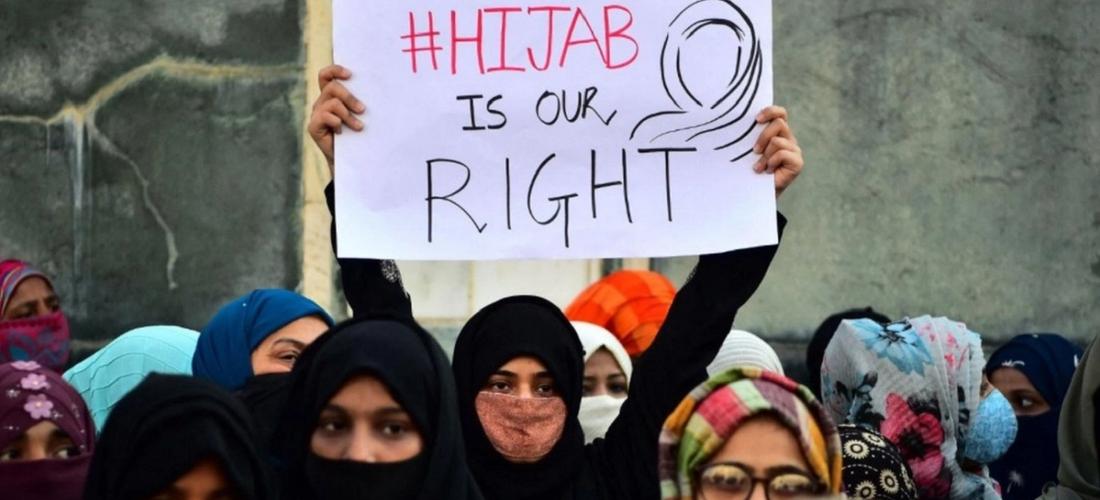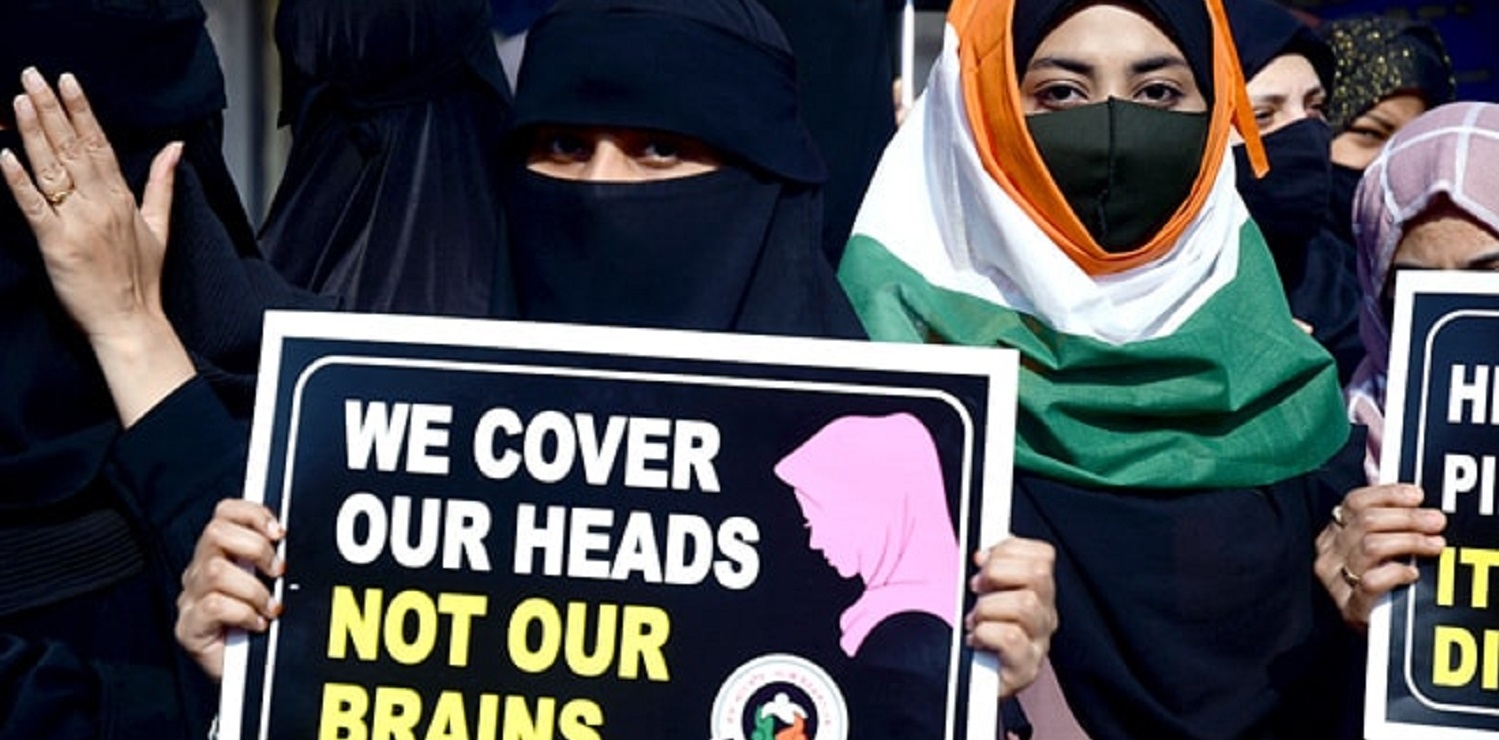How a Hijab Ban Verdict in (Karnataka) India Sets a Dangerous Precedent
Current Events
|
Mar 15, 2022
|
4 MIN READ

Image source: CAIR
India’s high court has spoken in the hijab ban case in Karnataka, India, and their ruling and their reasoning for their ruling sets a dangerous precedent in a seemingly democratic country.
A high court upheld a state government order in Karnataka that banned hijabs in the classroom, stating that the hijab is not “essential” to Islam, setting a dangerous precedent across the India. This verdict comes against the backdrop of targeted violence against Muslims and continuous conflict in India, in which a situation arose in the past several months at an Indian college preparatory school in Udipi, Karnataka – several Muslim students weren’t allowed to attend classes and were marked absent due to their wearing of hijab.
As we wrote about it last month, the students continued to wear hijab (which they and many female Muslim students before them had done so without any issue), moving the school to ban it saying that it violated their dress code. Parents of the students filed a petition against the ban, and a local court temporarily upheld the ban. The story garnered national attention when a video of student Muskan Khan went viral, as she defiantly walked away, shouting “Allahu Akbar,” from a group of Hindu men, who were flanking her and harassing her on the grounds of her college.
Now a three-judge bench in India has upheld the ban, saying it would “hinder their emancipation and go against the constitutional spirit of ‘positive secularism.’” The 129-page ruling, as reported by the BBC, “quotes passages from the Quran and books on Islam to argue that hijab is not an obligatory religions practice.
“‘There is sufficient intrinsic material within the scripture itself to support the view that wearing hijab has been only recommendatory, if at all it is. What is not religiously made obligatory therefore cannot be made a quintessential aspect of the religion through public agitations or by the passionate arguments in court,’' the order says.”
So the basis upon which the high court upheld the hijab ban is that hijab is not an essential part of Islam, it isn’t “required,” and it goes against “positive secularism.”
There is so much that is problematic in this line of thinking. We can talk about if hijab is fard (obligatory) or not, but in a democratic country like India, where the liberty of thought, expression, belief, faith and worship is safeguarded in the preamble to its constitution, that shouldn't even matter.
What matters is an Indian woman’s ability to worship freely, to practice one’s religion as she sees fit, and that includes her right to wear hijab.

As Hena Zuberi, director of Washington, D.C. operations for Justice for All says, “Hijab is … categorically an Islamic practice. The world needs to wake up to the reality of what is happening in India.”
Or, as MP (Member of Parliament) Asaduddin Owaisi (president of the All India Majlis-e-Ittehadul Muslimeen party) says in this tweet thread, “If it is MY belief & faith that covering my head is essential, then I have a right to express it as I deem fit. … Hijab is also an act of worship.”
So, why should we in America, in the West, care about this verdict in India? The fight for freedom to practice one’s religion is not lost on Muslims in America. Even in this country, where religious freedoms are strongly protected, Muslims (along with other minority religious groups) have faced many forms of discrimination over the years. One example is the pushback against religious-based head covering bans or waiver requirements in athletics (and other areas of life), against which athletes have fought on basketball courts, soccer pitches, cross country running tracks, boxing rings, gyms, volleyball courts and more.
From NCAA basketball player Bilqis Abdul-Qaadir to high school volleyball player Najah Aqeel, the message from Muslim women has been clear: You can’t ban us. We should be able to play and observe our religion. Hijab and religious attire bans as well as religious discrimination in general is a global problem. At Haute Hijab, we’ve reported on it numerous times with stories about hijab bans in France, Quebec (Canada) and here in the United States.
We can talk about if hijab is fard (obligatory) or not, but in a democratic country like India, where the liberty of thought, expression, belief, faith and worship is safeguarded in the preamble to its constitution, that shouldn't even matter.
To see countries that purport themselves to be bastions of democracy, like India and France, uphold hijab bans and target Muslim women carries global implications. As Hena told us in a previous interview, “I frame this around global Islamophobia, especially after the ‘war on terror,’ language that started here in the United States is being used across the world to target Muslims. It’s being used in Sri Lanka under the prevention of terrorism act there, in Rohingya. [These are] attacks on our basic religious activities. That’s why you should care.”
She added, “At a recent hearing on U.S.-India relations in the Senate Foreign Relations subcommittee, Assistant Secretary Donald Lu asserted his trust in the Indian judiciary; [therefore] this verdict must be taken seriously by the U.S. State Department.”
We support a woman’s right to practice her faith and dress freely, including her choice to wear hijab. As our CEO writes, “In the face of challenges plaguing our world today, we consider it an honor to serve the Muslim woman by providing her with products, meaningful experiences and resources to improve her relationship with hijab, expand her mind, enrich her life and nourish her soul.”
#CantBanUs
Subscribe to be the first to know about new product releases, styling ideas and more.
What products are you interested in?


